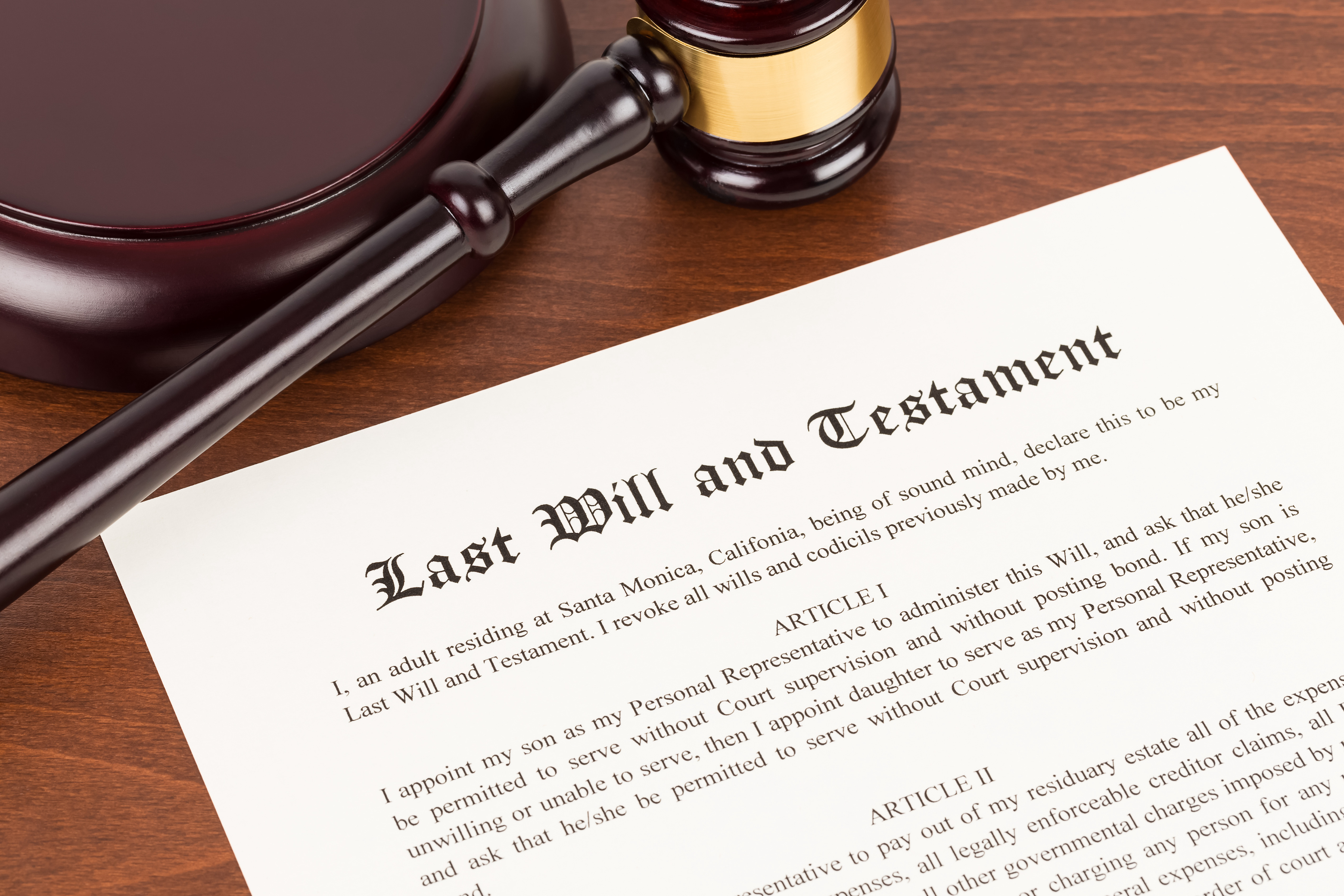Everyone should have an estate regardless of age or how much estate is worth. If you own even one asset, a will can help you avoid probate or avoid lengthy probate, depending on the asset. Wills take effect when you die, but trusts can manage your assets during your life and after your death. If you should become incapacitated because of an accident or a sudden illness, your estate plan ensures that your wishes are met as far as who makes the decisions you cannot.
Wills
A will distributes your assets after your death. It can also “pour” assets into a trust, include instructions for your heirs to take after your death, appoint executors and guardians, and even instruct your loved ones how to handle your funeral and burial.
Florida wills must be signed and witnessed by two witnesses. It does not need to be notarized. However, most people notarize their wills. A notarized will is self-proving, which speeds up the probate process. If a will is not self-proving, witnesses may have to provide testimony in probate court.
After your death, your estate planning attorney files the will with the probate court to start the probate process. The will is publicly available.
Trusts
A trust is a legal arrangement that allows you – the grantor – to transfer assets to a trustee. The grantor creates terms that tell the trustee how to manage the assets in the trust.
A trust is different from a will in that once the grantor transfers assets into the trust, it becomes effective. The two main types of trusts are a living trust and testamentary trust. The grantor creates a living trust during his or her lifetime. Directives in a will create a testamentary trust after the death of the grantor.
When you create an estate plan, you choose a trust that best benefits you during life and after death. A revocable trust is one that you can change or terminate when you want. An irrevocable trust is one that you cannot change.
The grantor of a revocable trust can also serve as a trustee. The trust usually names a successor trustee who takes over as trustee should the grantor / trustee become incapacitated or die. The assets in a revocable trust do not need to go through probate, though the assets are included in your taxable estate since you retain control over them.
When you create an irrevocable trust, you give up the ownership rights to the assets you place in the trust. The trustee cannot be the grantor. When you give up all control and interest in the trust assets, the income the trust creates is not included in your taxable income or your estate. If you structure the trust properly, it protects your assets from your creditors.
Special-Purpose Trusts
You might wish to do something different with your assets. Thus, the law has created special-purpose trusts. A charitable trust benefits charities but provides economic return to the grantor or the grantor’s beneficiaries. The assets in the trust support regular payments to your chosen charities. These trusts usually have a term. When the term ends, the beneficiaries receive the assets. A charitable trust could decrease gift taxes, estate taxes, and realize taxable income for you.
A special needs trust is one that provides for someone with disabilities that prevent the person from working. The disabled person receives financial support from the trust without putting their eligibility for public assistance programs in jeopardy.
Whether you choose a will, trust, or both depends on your personal situation. An estate planning attorney will review your financial picture and suggest the best way to structure your estate so that it best benefits you during your lifetime and your heirs after your death. As you age, you can change the structure of your estate to best reflect higher earnings and more assets.
Contact Us
If you do not have an estate or need to make changes to your estate, contact the probate attorneys at France Law today for a consultation.






















